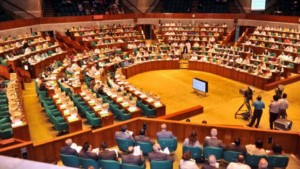BIDS experts urged the government for budgetary allocation to create jobs in formal sector as the recent trend shows the formal sector job is declining in comparison to informal sector.
Senior Visiting Fellow of CDER Rizwanul Islam said “During the years between 2005 and 2010, GDP growth was at a rate of 1.8 per cent that could have generated one per cent growth in employment”
“But between the year 2010 and 2013, 2.6 per cent GDP growth was needed to produce the same outcome or result” he added. Experts expressed their views on pre-budget (2017-18) discussion at the programme of “Development and Employment: Selected issues for Budget (2017-18)” held on Monday at the conference room of Bangladesh Institute of Development Studies (BIDS) in the capital.
The programme was jointly organised by newly formed think tank, Centre for Development and Employment Research (CDER) and Bangladesh Institute of Development Studies (BIDS).
Rizwanul Islam presented a keynote paper on “Mainstreaming Employment in Development Policies and Programmes”, where he addressed a number of issues like; the impact on poverty, inequality and employment.
Rizwanul Islam said “informal employment” in 2013 was 87 per cent and it should reduce the proportion to 60 per cent by 2030.
Rizwanul Islam also said that slow growth of employment growth is one of the major reasons for high rate of unemployment among the youth.
The second keynote speaker, Executive Chairperson of CDER Rushidan Islam Rahman, Ph D also explained the essentiality of ‘employment budget’ and to bring up the employment issues to the upcoming budget.
Rushidan Islam Rahman said, according to International Labor Organisation (ILO) report, only 73 Lakh people are engaged in formal sector. Among the entire labour market, 87.4 per cent people have engaged in informal sector.
Rushidan also informed that before 2010, there were no valid data on how many people have engaged in the informal sector of Bangladesh.
Rushidan Islam Rahman explained the stagnation of Ready Made Garment (RMG) employment and said use of modern machineries leading to higher capital intensity in large factories but it reduces the future growth of labour demand.




